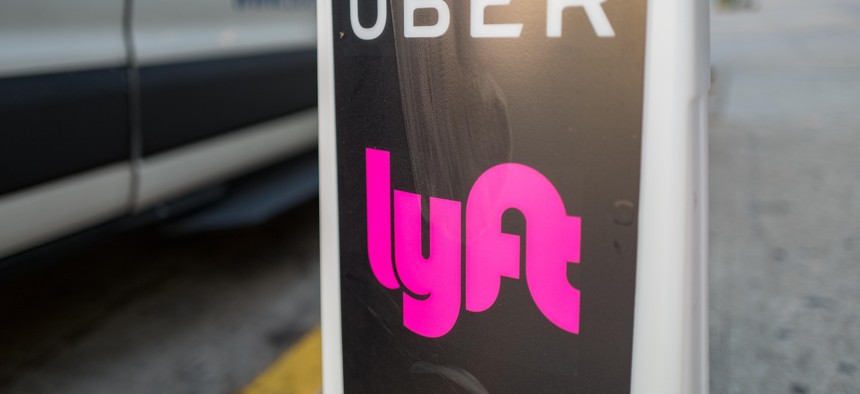Lyft Offers Incentives to Drivers Who Switch to Electric Vehicles

Photo by Smith Collection/Gado/Getty Images
The move comes amid new federal subsidies for EVs and as California is mandating emissions cuts for app-based ride-booking companies over the next decade.
App-based ride-booking service Lyft is rolling out a new set of perks geared toward getting more drivers into electric vehicles.
The move comes as the federal government is offering more generous tax credits for EV purchases that meet certain requirements. Many states and localities also have incentive programs and are planning for a significant expansion of EV charging infrastructure.
In California, Lyft and competitor Uber also face state regulations that call for emissions cuts from ride-booking services in the years ahead.
Lyft said Monday that it would award drivers in California a $150 bonus if they complete at least 50 trips in a week using a personal electric vehicle. That incentive will run through Dec. 29, 2024 and drivers can keep receiving the bonus until they hit $8,100. Drivers can only get one bonus payment per week.
Additionally, Lyft said it had entered into a partnership with charging company EVgo to get U.S. drivers discounts of up to 45% on standard charging rates, with the caveat that savings could vary based on factors like time and location. And it announced discounts and pre-negotiated rates for home charging equipment and installations with two different companies, Wallbox and Coil.
"We know many drivers on Lyft want to switch to EVs, which is why we’re focused on addressing the biggest barriers they face in transitioning: upfront costs and access to charging,” Paul Augustine, Lyft’s director of sustainability, said in a statement.
Lyft pledged in 2020 to have all of the vehicles on its platform go electric by 2030. The company dumped upward of $45 million into the campaign for a failed measure on California's November ballot that would have raised taxes on people earning over $2 million a year to help pay for electric vehicle subsidies.
A California regulation adopted last year, known as the Clean Miles Standard, sets a target of having 90% of passenger miles traveled for ride-booking trips to be in fully electric vehicles by 2030.
In a financial disclosure document for the third quarter of 2022, Lyft cautioned that "failure to meet the future requirements could have adverse impacts on our costs and ability to operate in California, as well as public goodwill towards our company."
Uber is also pushing to shift drivers on its platform to EVs and claims it is providing around $800 million worth of support for this effort across the U.S., Canada and Europe.
NEXT STORY: StateRAMP launches early assessment program






